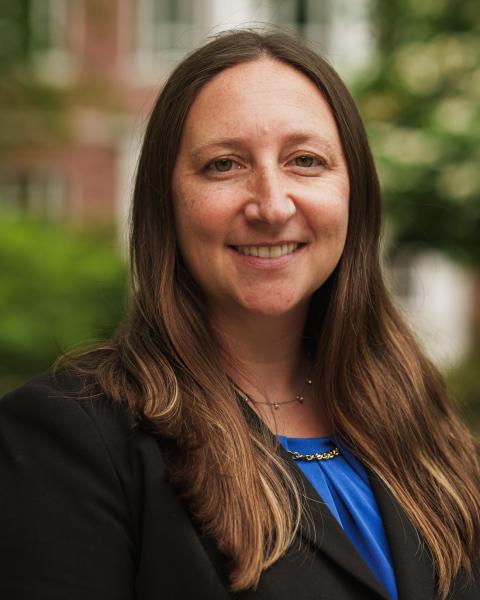Working Together on Housing Solutions
One of New Hampshire’s most pressing problems is a fundamental necessity — a place to live.
As individuals and families struggle to find affordable spaces to buy or rent, it’s estimated that by 2040 the state will need 90,000 additional housing units.
To address housing development opportunities, in 2022 Governor Sununu’s $100 million InvestNH initiative allocated $5 million to provide municipalities with Housing Opportunity Planning (HOP) grants to analyze and update their land use regulations. Community engagement is an important part of municipal work under these grants.
UNH Extension partnered with NH Housing to develop a curriculum that teaches HOP grantees, and others working to address housing in communities, about the state’s housing problem, how to engage the community, how to set priorities and how to plan for an increase in housing supply at the community level. From that partnership, Housing Academy was created.

Housing Academy is a hybrid training series — with in-person sessions and webinar presentations. Over 180 community volunteers, municipal staff, regional planning professionals and housing navigators from 64 New Hampshire communities have been trained in housing issues and community engagement through this program.
Guest presenters from NH Housing, NH Listens, Plan NH and the University of Kentucky have joined Extension staff in creating content for the training series.
Challenges and Opportunities in Gate City
One of the HOP recipients is the state’s second largest city, Nashua, where an influx of high-income workers from the greater Boston area has complicated the housing market. A housing study in 2020 found that from 2013 to 2018 the number of households earning over $200,000 increased by over 60%. The housing stock is primarily single-family, and growth is driven by one- and two-person households. This change has made it difficult for lower-income families to find affordable housing.
Nashua’s planning manager Sam Durfee explains that vacancy rates are low, prices are high and available land for development is limited. Addressing these challenges requires creativity.
Durfee took on the role of planning manager in 2022, not long after the city’s new master plan was finalized in 2021. “One of my first charges was to draft and issue an RFP for a land use code update, right on the tails of the adoption of the master plan, which is exactly how you want to do it. A master plan defines the vision and the code manifests that vision,” he says.
By updating the code, Nashua is allowing for more creative solutions and incentivizing smaller homes while balancing other needs, like maintaining neighborhood character.
“We don’t want to saddle the taxpayer with major infrastructure upgrade costs, nor do we want to saddle developers with those costs, because they’ll just be passed on to the end user — someone who buys a home or is renting. So, we’re trying to keep development costs as low as possible by doing some smart planning and growing in a way that is as least impactful to our services as possible.”
Durfee says one of the most helpful aspects of participating in Housing Academy has been understanding what other communities are doing in the state. “It’s been a really good check on our regulatory approaches to see, alright, are we coming up with something that’s way out of left field and it’s going to be a real challenge for people? Or are we kind of on the forefront of a regulatory transition statewide?” he says.

Communication is Key
Housing issues can get contentious. Securing community acceptance and support for strategies, like zoning changes, is a difficult task. That’s why effective engagement requires an understanding of the many facets of housing including its social, economic and regulatory components.
Participants of Housing Academy learn how to plan a community engagement strategy with methods like key informant interviews, surveys, storytelling and community forums.
The curriculum also covers the intricacies of how to talk about housing, strategies for tough conversations and best practices for virtual and in-person meetings. Through effective engagement, communities can identify local needs and priorities, assess strategies and then implement solutions, while making sure all voices are heard.
Nashua’s Key Considerations for Housing
• Expected continued growth
• Balancing affordability
• Minimizing displacement
• Designating downtown as receiver of growth
• Leveraging resources with strategic partnerships


